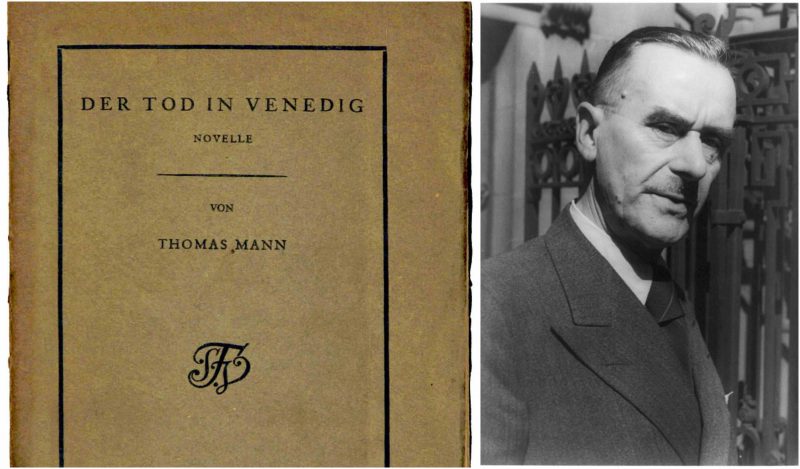There was a real Tadzio in Thomas Mann’s life, who was named Władzio
Thomas Mann is widely recognized as one of the most significant German writers of all times, who in 1929 has also been acknowledged as the Nobel Prize Literature laureate for his first novel, The Buddenbrooks where he playfully portrays his family. But The Buddenbrooks have only made a solid introduction of what followed from the magical brains of Mann.
Born in Lübeck, Mann originated from a well-established, wealthy family of traders. Upon the outbreak of the WWII, he had moved to the United States, only to return in Switzerland in 1952. He was considered as one of the most influential writers of the so-called Exilliteratur, corpus of German literature written by those who had opposed the Hitler regime. He never returned to live in Germany after the war, though he frequently paid his visits.
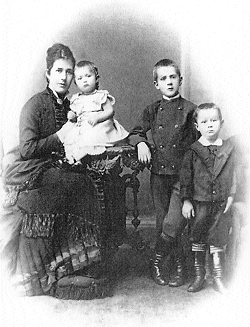
As a writer, Mann has made the most intriguing psychological and intellectual insights of the human mind and nature through almost each of his books. He uniquely managed to embrace the perplexed ideas of philosophers like Goethe, Nietzsche, and Schopenhauer, all too heavy to be digested by any ordinary writer.
Many would remember Mann as the literary figure who had promptly answered to the Hitler regime with a series of famous anti-Nazi speeches in German, which were broadcasted live via the BBC radio on a monthly basis.
And as much as it is compelling to hear how Mann criticized Hitler and his followers as беинг completely out of touch with European values and culture, and as he courageously nurtured the notion of collective guilt among Germans, there is one thing which Mann can be fairly attributed to.
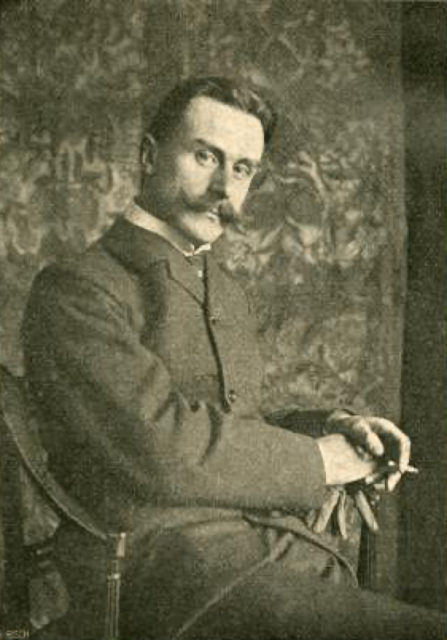
Recalling Death in Venice, one of Mann’s most well-known works, and upon re-reading his private journal entries, critics have identified that there are real-life connections among the fictitious Polish boy Tadzio and a real boy whom Thomas have really encountered upon his family vacation in Venice.
After his death, Mann’s diaries have revealed the author’s personal struggles referring homosexuality and pedophilia, which have inevitably reflected in his prominent novella, Death in Venice.
The novella follows the story of an elderly man, named Aschenbach, and his obsession with a 14-years-old Polish boy Tadzio who is at Lido along with his mother and siblings.
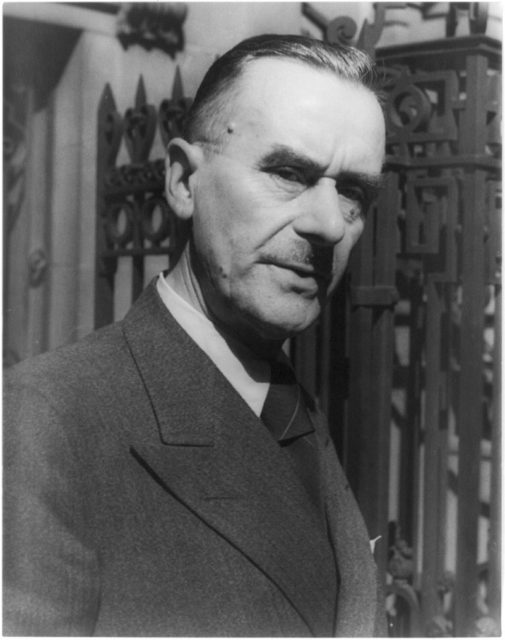
What Thomas Mann’s diaries had revealed, is that during the summer of 1911, Mann had stayed at the Grand Hotel des Bains on Lido of Venice, which has served as the setting for his novella Death in Venice. Further on, it was at the same hotel where he had encountered Władysław (Władzio), a 10-year-old Polish boy, describing him as an angelic figure. Mann has stayed at the hotel with his wife and brother, and later on, his wife Katia will also affirm the connection between the fictitious character of Tadzio and its real counterpart Władzio.
Mann was also attracted to his own son
There is no doubt that readers can really observe Mann’s problematic sexuality through the scope of his literary work. Anthony Heilbut’s has tributed maybe the most relevant biography about Mann under the title Thomas Mann: Eros and Literature (1997), supported by many arguments.
In addition, it would be Gilbert Adair’s The Real Tadzio (2001), that will affirm this with additional evidence of Mann’s encounter with Władysław Moes.
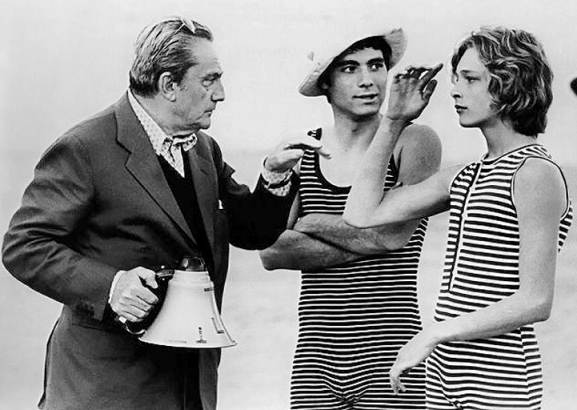
What’s further intriguing is that in his personal diary, Mann has also openly expressed attraction to his own 13-years-old son, Klaus Mann. His journal reads the following: “Klaus to whom recently I feel very drawn“, only later the read to be intensified with other submissions like: “In love with Klaus during these days (…) Delight over Eissi, who in his bath is terribly handsome. Find it very natural that I am in love with my son… Essi lay reading in bed with his brown torso naked, which disconcerted me.”
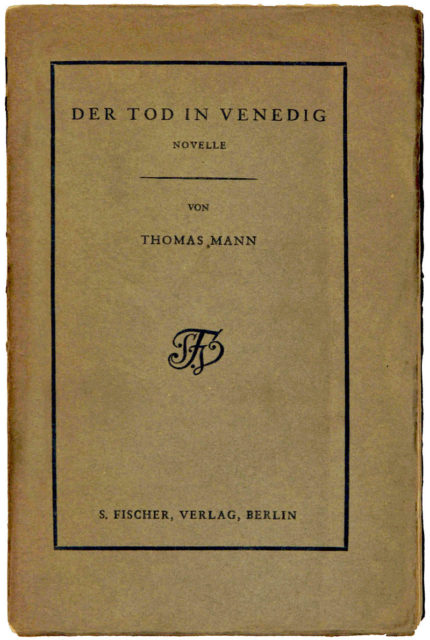
Eissi, as Mann used to call his son, is mentioned in couple of other journal submissions, one of which dates October 17th, 1920, and also has reference to his other son, Golo: “I heard noise in the boys’ room and surprised Eissi completely naked in front of Golo’s bed acting foolish. A Strong impression of his pre-masculine, gleaming body. Disquiet.”
The real Tadzio has been a Polish baron
Thomas Mann’s wife, Katia, at one occasion in 1974 has recalled how her husband has picked up the idea of Death in Venice, after the actual holiday of the couple in Venice.
Katia has shared the following at the occasion: “All the details of the story, beginning with the man at the cemetery, are taken from experience… In the dining-room, on the very first day, we saw the Polish family, which looked exactly the way my husband described them: the girls were dressed rather stiffly and severely, and the very charming, beautiful boy of about 13 was wearing a sailor suit with an open collar and very pretty lacings. He caught my husband’s attention immediately. This boy was tremendously attractive, and my husband was always watching him with his companions on the beach. He didn’t pursue him through all of Venice—that he didn’t do—but the boy did fascinate him, and he thought of him often … I still remember that my uncle, Privy Counsellor Friedberg, a famous professor of canon law in Leipzig, was outraged: “What a story! Written by a married man with a family!“.

The story of how the real Tadzio and the fictitious one were connected, was discovered by Mann’s Polish translator, Andrzej Dołęgowski, during the 1960’s, almost a decade after the death of the author. He has identified that the real Tadzio was to be a son of Polish baron – Władysław Moes, whose first name was most usually shortened as Adzio.
Some sources have stated that Władysław Moes had not learned about this connection until he had seen the movie that has followed the book in 1971.
Summed up, all records which are initially extracted from Thomas Mann diaries, a sensation in Germany during the late 1970’s, have affirmed the infusion of close homo-eroticism lines in Mann’s work.
The struggle between the Dionysiac and the Apollonian principles, as framed by literary critics, is undeniable key-reading of Death in Venice. This has only provoked figures like Alfred Kerr, a long-term enemy to Mann, to blame him for elevating pederasty at a level which is acceptable to the cultivated middle classes. However, that has played a pivotal role in the introduction of the discourse of same-sex desires into general culture.
After all, Mann’s struggle with his own sexuality has paved the way towards a cultural revolution.
